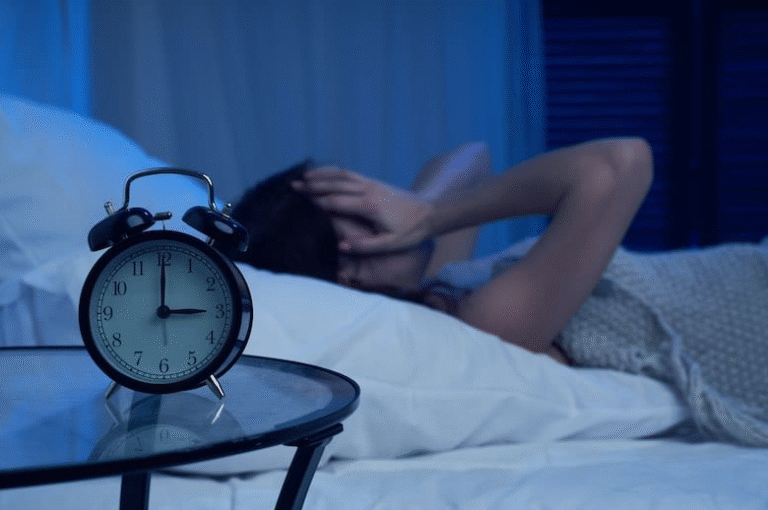can chiropractor make herniated disc worse
Table of Contents
Understanding Herniated Discs And Chiropractic Care
What Is A Herniated Disc?
A herniated disc, sometimes called a slipped or ruptured disc, happens when the soft, jelly-like center of an intervertebral disc pushes out through a tear in the tougher exterior. Think of it like a jelly donut where the filling squeezes out. This can happen in any part of your spine, but it’s most common in the lower back and neck. When the disc material presses on nearby nerves, it can cause a whole host of problems, like pain, numbness, tingling, and weakness, often radiating down your arms or legs. It’s not just about back pain; a herniated disc in the neck can also be a source of headaches, which is where a good headache chiropractor comes in.
How Chiropractic Adjustments Work
Chiropractic care focuses on the relationship between the spine and the nervous system. Chiropractors use hands-on techniques, primarily spinal manipulation or adjustments, to restore proper alignment and movement to the joints in your spine. The idea is that by correcting misalignments, or subluxations, they can reduce nerve irritation and improve your body’s natural ability to heal. For someone with a herniated disc, the goal is often to create more space around the affected disc and nerve, potentially reducing pressure and pain. NuSpine Chiropractic – Ocotillo, for instance, uses these principles to help patients.
Potential Benefits For Disc Issues
Many people find relief from herniated disc symptoms through chiropractic care. The gentle application of spinal adjustments can help reduce inflammation and muscle spasms that often accompany a herniated disc. By improving spinal mobility and function, chiropractors aim to decrease the pressure on the affected disc and the nerve root. This can lead to a significant reduction in pain and an improvement in your ability to move. For those experiencing headaches related to disc issues, seeking out a headache chiropractor can be particularly beneficial. Some patients at places like NuSpine Chiropractic – Ocotillo report feeling better after just a few sessions, experiencing less pain and a greater range of motion. It’s a conservative approach that many find helpful.
When Chiropractic Care Might Worsen A Herniated Disc
While chiropractic care can be beneficial for many back issues, including some herniated discs, it’s not always the right approach for everyone. Sometimes, the way treatment is applied can actually make a herniated disc worse. This is especially true if the chiropractor isn’t fully aware of your specific condition or if they use techniques that are too forceful for your situation. At NuSpine Chiropractic – Ocotillo, we understand that each patient is unique, and a one-size-fits-all approach just doesn’t work when dealing with disc problems.
Aggressive Spinal Manipulation Techniques
Some chiropractic adjustments involve high-velocity, low-amplitude thrusts. While these can be effective for joint mobility, they might put too much pressure on a compromised disc. If a herniated disc is particularly inflamed or unstable, a forceful manipulation could potentially push the disc material further out, irritating nerves more intensely. It’s like trying to push a damaged water balloon – you might just make the leak worse.
Improper Diagnosis And Treatment Plans
Getting the diagnosis right is the first step. If a chiropractor misinterprets imaging or doesn’t thoroughly assess your symptoms, they might recommend a treatment plan that’s not suited for your herniated disc. For instance, focusing solely on spinal alignment without considering the disc’s specific location and severity could lead to ineffective or even harmful adjustments. A good headache chiropractor, for example, would look at the whole picture, not just one symptom.
Ignoring Patient Symptoms And History
Your body talks to you, and it’s important to listen. If you’re experiencing increased pain, numbness, or tingling after an adjustment, that’s a signal. A chiropractor who dismisses these symptoms or pushes forward with the same treatment without re-evaluating could be making things worse. A thorough history and ongoing communication are key. For example, if you’ve had a specific type of injury that led to the herniation, that history needs to be considered by any practitioner, including those at NuSpine Chiropractic – Ocotillo.
It’s really about finding a balance. You want a chiropractor who is confident and skilled, but also cautious and attentive to your body’s reactions. The goal is healing, not just performing a technique.
Signs A Chiropractor Might Be Making Things Worse
It’s a bummer when you go to a chiropractor hoping for relief, especially with a herniated disc, and things just don’t get better, or worse, they actually feel worse. At NuSpine Chiropractic – Ocotillo, we understand that this can be a real concern. Paying attention to how your body responds after an adjustment is key. If you’re experiencing any of the following, it might be a sign that the current approach isn’t the right fit for your herniated disc.
Increased Pain After Treatment
This is probably the most obvious red flag. A little soreness after an adjustment can be normal, kind of like how your muscles feel after a tough workout. But if you’re leaving the office with significantly more pain than you came in with, or if that pain lingers for days, that’s not a good sign. It could mean the adjustment was too forceful for your condition, or perhaps it targeted an area that needed a gentler touch. For those dealing with disc issues, especially if they’ve had a bad experience before, this is something to watch out for. It’s not just about the pain itself, but how your body is reacting to the manipulation.
New Neurological Symptoms
When you have a herniated disc, it can press on nerves, causing symptoms like numbness, tingling, or weakness in your arms or legs. If you start experiencing these kinds of symptoms, or if existing ones get worse, after a chiropractic session, it’s a serious concern. This could indicate that the pressure on the nerve has increased. For instance, if you suddenly feel pins and needles down your leg after an adjustment, or if your leg weakness becomes more pronounced, it’s time to stop and reassess. This is particularly important if you’re seeing a chiropractor for issues that might be related to nerve compression, and it’s something a good headache chiropractor would be very mindful of.
Lack of Improvement Over Time
While not every adjustment will feel like a miracle cure, you should expect to see some positive trend over a reasonable period. If you’ve been consistent with your appointments, perhaps with a practice like NuSpine Chiropractic – Ocotillo, and you’re not noticing any reduction in pain, improved mobility, or a decrease in the symptoms associated with your herniated disc, it’s worth questioning the treatment plan. Sometimes, it’s not about the chiropractor making things worse, but rather that their specific methods aren’t effective for your particular disc problem. It might be time to explore other options or discuss a different approach with your provider. If you’re not seeing any progress, it’s a clear signal to have a frank conversation about what’s happening.
Choosing The Right Chiropractor For Disc Problems
When you’re dealing with a herniated disc, picking the right chiropractor is a big deal. It’s not just about finding someone nearby; it’s about finding someone who really gets disc issues and knows how to handle them safely. At NuSpine Chiropractic – Ocotillo, we understand this. We’ve seen firsthand how the wrong approach can cause more problems, which is why we focus on a careful and personalized treatment plan. If you’re looking for a headache chiropractor who also specializes in disc problems, you’re in the right place.
Experience With Herniated Discs
It’s really important to find a chiropractor who has a lot of experience specifically with herniated discs. They should be able to explain what’s happening with your spine and how their methods can help without making things worse. Ask them about their training and how many patients with similar conditions they’ve treated. A good chiropractor will be upfront about their success rates and what you can expect.
Communication About Your Condition
Open communication is key. Your chiropractor should listen carefully to your symptoms, your medical history, and your concerns. They need to explain the proposed treatment plan in a way that makes sense to you. Don’t be afraid to ask questions. If something feels off or you’re not comfortable with a particular adjustment, you should feel empowered to say so. This is your body, and you have a right to understand and agree with the treatment you receive.
Focus On Headache Chiropractor Expertise
While many chiropractors can help with general back pain, if you’re also experiencing headaches related to your disc issue, finding a chiropractor with specific headache expertise is beneficial. A chiropractor who understands the connection between spinal alignment, nerve function, and headaches can offer a more targeted approach. This dual focus means they’re not just treating the disc but also addressing the related symptoms like migraines or tension headaches. NuSpine Chiropractic – Ocotillo has chiropractors who are skilled in both areas, aiming for holistic relief.
Alternative And Complementary Treatments
When dealing with a herniated disc, it’s not always about aggressive adjustments. Sometimes, a gentler approach is what your body needs. At NuSpine Chiropractic – Ocotillo, we understand that different conditions require different strategies. This is where alternative and complementary treatments come into play, offering ways to support healing without risking further irritation.
Gentle Chiropractic Techniques
Not all chiropractic care is the same. Some techniques are much softer and focus on restoring alignment through very specific, low-force movements. These methods can be particularly helpful for sensitive conditions like herniated discs. They aim to reduce pressure on the nerves and discs without causing jarring motions. Think of it less like a forceful push and more like a precise nudge to help things settle back into place. For those specifically seeking an ocotillo chiropractic experience that prioritizes a gentle touch, exploring these methods is a good idea.
Therapeutic Exercises
Exercise is a big part of recovery. Specific exercises can strengthen the muscles that support your spine, which in turn can help take pressure off the damaged disc. These aren’t just random exercises; they’re tailored to your specific condition. They might include:
- Core strengthening exercises to build stability.
- Stretching to improve flexibility and reduce muscle tension.
- Low-impact aerobic activities like walking or swimming to promote blood flow and healing.
Working with a professional, perhaps even a chiropractor who also acts as a headache chiropractor and understands the interconnectedness of spinal health, can help you find the right exercises.
Lifestyle Modifications For Disc Health
What you do day-to-day matters a lot for disc health. Small changes can make a big difference over time. Consider these adjustments:
- Ergonomics: Make sure your workspace is set up correctly to support your spine. This means proper chair height, monitor placement, and taking regular breaks to move around.
- Lifting Techniques: Always bend your knees and keep your back straight when lifting objects. Use your legs to do the work, not your back.
- Weight Management: Carrying extra weight puts additional stress on your spine, including your discs. Maintaining a healthy weight can significantly reduce this burden.
- Sleep Posture: Sleeping on a supportive mattress and using a pillow that keeps your neck aligned can prevent unnecessary strain.
These lifestyle changes, combined with appropriate chiropractic care and exercises, create a holistic approach to managing and recovering from a herniated disc. It’s about building a healthier spine from the inside out, not just treating the symptoms.
The Role Of Communication In Chiropractic Treatment
Open communication with your chiropractor is super important, especially when you’re dealing with something like a herniated disc. It’s not just about them telling you what to do; it’s a two-way street.
Discussing Your Concerns Openly
Don’t be shy about telling your chiropractor exactly how you’re feeling. If something hurts or feels off, speak up. For instance, if you’re getting treatment at NuSpine Chiropractic – Ocotillo and you notice a new ache after an adjustment, you need to mention it right away. They can’t help you if they don’t know what’s going on with your body.
Providing Feedback On Treatment
Your feedback helps shape your treatment plan. Think of it like this:
- What adjustments felt helpful?
- What movements made things worse?
- Are there any specific activities you’re worried about?
This information is gold for a chiropractor, particularly a headache chiropractor who understands how different body parts connect.
Understanding The Headache Chiropractor’s Approach
When you’re looking for care, especially if headaches are part of your issue alongside the disc problem, finding a headache chiropractor is a good idea. They often have a nuanced approach. For example, a good headache chiropractor, like those you might find at NuSpine Chiropractic – Ocotillo, will explain why they’re using certain techniques. They might talk about how adjusting one area can affect another, which is really relevant for disc issues.
It’s really about building trust. When you feel comfortable talking about your pain and your progress, the chiropractor can better tailor the care to your specific needs. This partnership is key to making sure the treatment is working for you and not against you. Remember, they’re there to help you heal, and that requires them to have the full picture of what your body is experiencing. This is also true for general chiropractic care, like at ocotillo chiropractic, where clear communication is always the best policy.
So, Can a Chiropractor Make a Herniated Disc Worse?
Ultimately, whether chiropractic care can worsen a herniated disc really depends on a few things. It’s not a simple yes or no answer. The skill of the chiropractor matters a lot, as does the specific type of herniated disc you have and how severe it is. For some people, the right kind of adjustment might bring relief. But for others, especially if the disc issue is really bad or if the chiropractor isn’t experienced with these kinds of problems, there’s a chance things could get more uncomfortable. It’s super important to talk openly with your chiropractor about your condition and to find someone who knows their stuff when it comes to spinal disc problems. If you’re unsure, getting a second opinion from a medical doctor is always a smart move before starting any new treatment.






